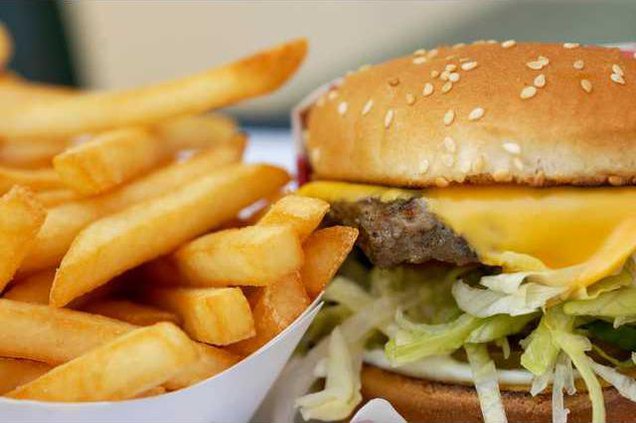Junk food is not only unhealthy and addictive, but it appears to stifle any willingness to try new foods, according to a study led by the University of New South Wales Australia.
The study, which used rats as subjects, is published in the journal Frontiers in Psychology. It "explains how excessive consumption of junk food can change behavior, weaken self-control and lead to overeating and obesity," according to the study.
"A diet of junk food not only makes rats fat, but also reduces their appetite for novel foods, a preference that normally drives them to seek a balanced diet," the researchers noted in a written statement.
That's especially worrisome because, as Scientific American noted this week, "Obesity is now so normal that parents can't see it in their kids." It said gradual change is overlooked. That point was also hammered home in the journal Pediatrics, which published a study with that finding by researchers at Georgia Southern University.
In the junk food study, grape and cherry sugary waters were central to the research and both those with healthy and unhealthy diets were allowed the sugary drinks. The lab rats were taught to associate sound cues with the drinks. The rats that ate healthy diets did not respond to the cues when they were full. "This inborn mechanism, widespread in animals, protects against overeating and promotes a healthy, balanced diet," the researchers said.
The brakes were off, though, for rats who'd been allowed to junk out, eating pies, dumplings, cookies and cake. They got fat, they stopped accepting other types of food and when they heard the familiar tinkling sound that meant the flavored sugar-water to them, they overindulged, gaining considerable weight.
Even after they were switched back to a healthy diet, the changes persisted for some time.
"We think that a junk diet causes lasting changes in the reward circuits part of the rats' brains, for example, the orbitofrontal cortex, an area responsible for decision-making," said UNSW professor Margaret Morris, head of pharmacology for the School of Medical Sciences and one of the primary researchers, in the background material. "Because the brain's reward circuitry is similar in all mammals, this could have implications for people's ability to limit their intake of certain kinds of food. If the same thing happens in humans, eating junk food may change our responses to signals associated with food rewards. It's just like you've just had ice cream for lunch, yet you still go out and eat more when you hear the ice cream van comes by."
"Cultural shifts — much of the world has moved from physically intense agrarian societies to relatively sedentary, urban ones — also contribute to higher obesity and overweight rates, because the average person simply isn’t burning as many calories he or she once did," writes Victoria Bekiempis for Newsweek. "But junk food has been identified as perhaps the primary culprit in the obesity epidemic. Research has emerged showing that high-calorie, high-fat foods replete with excess sugar and salt are desirable despite their health risks because they can be addictive, rewiring the brain’s reward mechanism just like cocaine does."
Email: lois@deseretnews.com, Twitter: Loisco
Junk food addictive, stifles willingness to try new foods





